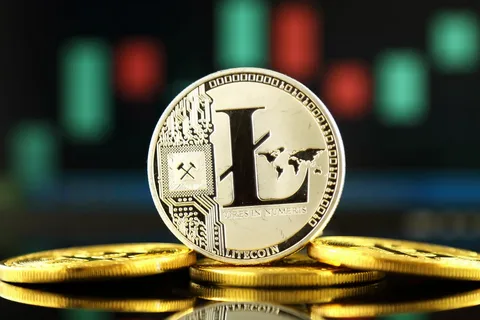Institutional Investors Weigh In on the Future of Cryptocurrency: A Glimpse into the Hottest Investment Opportunity of the Decade?
The growing mainstream acceptance and adoption of cryptocurrencies have caught the attention of institutional investors, who are increasingly recognizing the potential of Bitcoin and other digital assets. As a result, some of the world’s most prominent investment firms, asset managers, and pension funds are beginning to allocate a portion of their portfolios to cryptocurrency investments. In this article, we’ll delve into what these "institutional" investors are saying about the future of crypto and what it means for the industry.
Increased Institutional Interest
In recent months, a growing number of institutional investors have announced their entry into the cryptocurrency space. For instance, investment giants like Fidelity Investments, BlackRock, and State Street Global Advisors have launched cryptocurrency custody and trading solutions, while firms like Citi, JPMorgan, and Goldman Sachs have explored blockchain-based solutions. Even pension funds, such as the $500 billion California Public Employees’ Retirement System (CalPERS), have started to allocate a small portion of their assets to cryptocurrencies.
Key Takeaways from Institutional Investors
So, what do these institutional investors think about the future of cryptocurrency? Here are some key takeaways:
- Growing Acceptance and Mainstreaming: Several institutional investors see cryptocurrencies as a new asset class with significant potential for growth. They believe that the increased acceptance and understanding of crypto will lead to improved market liquidity and reduced volatility.
- Long-Term Outlook: Fidelity’s Director of Digital Assets, Tom Jessop, has said, "We believe that the value of digital assets will increase over the long term, as more investors and institutions adopt them."
- Innovation and Adoption: JPMorgan’s U.S. Chief Operating Officer, Marianne Lake, notes that, "Cryptocurrencies have the potential to innovate and create new opportunities for customers, businesses, and financial institutions."
- Cryptocurrency as a Tool for Capital Markets: Some institutional investors are exploring the potential for cryptocurrencies to facilitate capital markets transactions, such as bond issuance and repo markets, citing increased efficiency and reduced costs.
- Risk Management and Diversification: Many investors believe that cryptocurrencies can be a valuable addition to a diversified investment portfolio, providing a potential hedge against inflation, market volatility, and other macroeconomic risks.
Challenges and Roadblocks
While institutional investors are optimistic about the future of cryptocurrency, there are still several challenges and roadblocks to overcome:
- Regulatory Framework: The lack of a clear regulatory framework continues to hinder widespread institutional adoption, as many firms are reluctant to invest in an asset with uncertain legal and compliance implications.
- Infrastructure and Custody: The need for robust infrastructure and secure custody solutions remains a significant hurdle, with many institutions still grappling with the security and compliance requirements for storing and trading cryptocurrencies.
- Market Volatility: Institutional investors will need to overcome their concerns about the high market volatility, which can expose them to significant losses.
Conclusion
As institutional investors continue to allocate a portion of their assets to cryptocurrency, it’s evident that the tide is turning in favor of mainstream acceptance. While there are still challenges to navigate, the potential for growth, innovation, and diversification make cryptocurrencies an attractive addition to a well-diversified portfolio.
For cryptocurrency enthusiasts and industry stakeholders, the increased involvement of institutional investors is a significant milestone, signifying the maturation of the market and its ability to attract professional investors. As the space continues to evolve, we can expect to see more institutional investors enter the fray, contributing to the growth and legitimacy of the digital currency universe.

